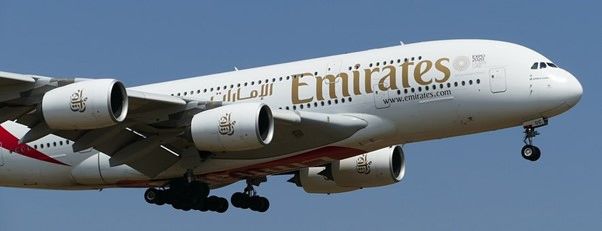
Emirates A380
According to the company’s president, Tim Clark, Emirates Airlines will return to full profitability in 2023 as the carrier prepares to close its fiscal year in March.
Like the rest of the aviation industry, the Dubai-based airline has suffered significant losses in recent years, with passenger and cargo capacity plummeting by as much as 80%.
On the other hand, Clark told reporters last Tuesday that “we are in for a nice set of results; we haven’t entirely reversed it, but we have swung it.”
“We’ve swung the firm back to profitability, we’re cash-positive again, and we have a very solid balance sheet that we’ve been developing,” he said.
“We are projecting profits next year and want to issue a dividend and repay part of the government equity that has been invested into the business,” he continued.
The Dubai government provided the airline with approximately US$2 billion in help, despite the carrier’s US$5.5 billion loss during the 2020-21 fiscal year.
According to Reuters, Clark stated on the sidelines of the World Government Summit in Dubai on Tuesday that the carrier will back Qatar Airways by refusing to take delivery of Airbus’ A350 jets.
Since early last year, Airbus and Qatar have been at odds about the degradation of a number of the carrier’s widebody aircraft, which has now escalated into a legal fight.
Many airlines have reported similar problems, but the Federal Aviation Administration, the European Aviation Safety Agency, and the planemaker have all stated that the aesthetic damage poses no safety risks.
Despite this, Clark stated, “we’re not going to take degraded planes.” I stated unequivocally… that this must be resolved before delivery to Emirates.”
Emirates signed a 16-billion-dollar contract for 50 A350 jets in 2019, with deliveries beginning in 2023.
Despite this, Clark stated that the airline is “doing pretty well” in the face of rising fuel prices caused by the Russia-Ukraine conflict, which has shut off one of the world’s main oil supplies.
According to the International Air Transport Association, jet fuel prices are currently 141.5 per cent higher than this time last year, which utilises data from energy source Platts. The current average price per barrel is above $115.
“Airfares are high simply because the fuel cost is so high, and we cannot continue to absorb that,” Clark explained.
He expects that travel demand will remain robust despite the increase in ticket prices as pandemic-related limitations lessen.
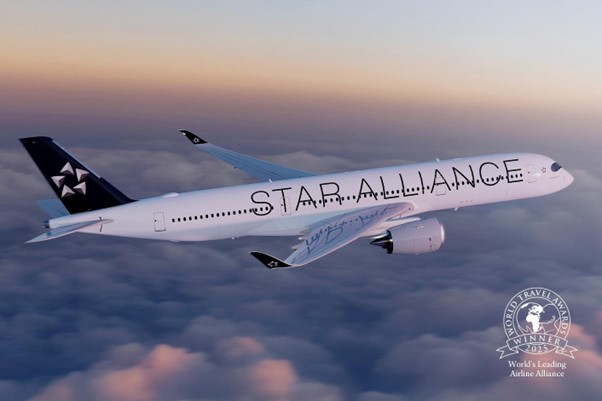 Star Alliance Named World’s Leading Airline Alliance for 2025 at World Travel Awards
Star Alliance Named World’s Leading Airline Alliance for 2025 at World Travel Awards 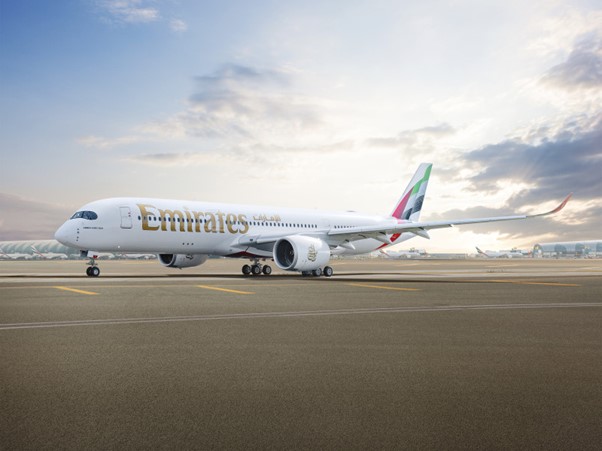 Emirates Ends 2025 on a High with Five World Travel Awards and Over 20 Global Honours
Emirates Ends 2025 on a High with Five World Travel Awards and Over 20 Global Honours 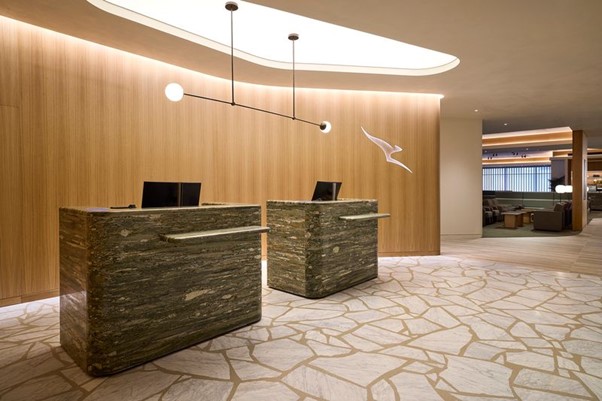 Qantas Unveils New Auckland International Lounge Ahead of Holiday Rush
Qantas Unveils New Auckland International Lounge Ahead of Holiday Rush 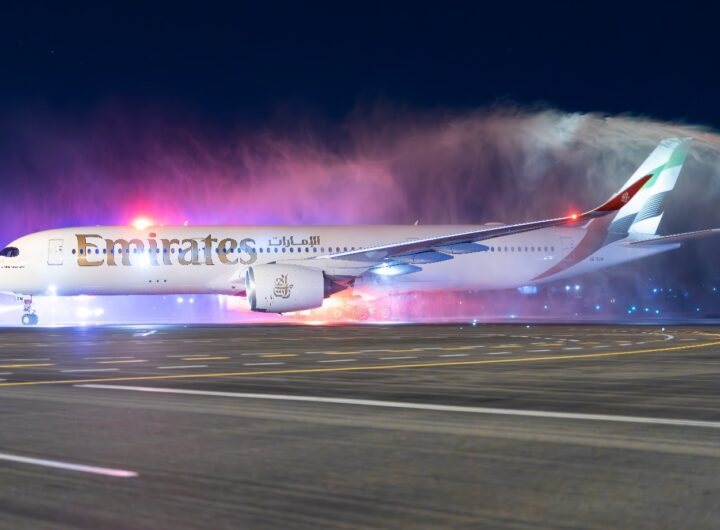 Emirates A350 Debuts in Adelaide with New Premium Economy, Boosting Connectivity and Comfort to Dubai
Emirates A350 Debuts in Adelaide with New Premium Economy, Boosting Connectivity and Comfort to Dubai  Qantas Elevates A380 First Class with New Fine Dining, Aesop Amenity Kits and Bollinger Champagne
Qantas Elevates A380 First Class with New Fine Dining, Aesop Amenity Kits and Bollinger Champagne 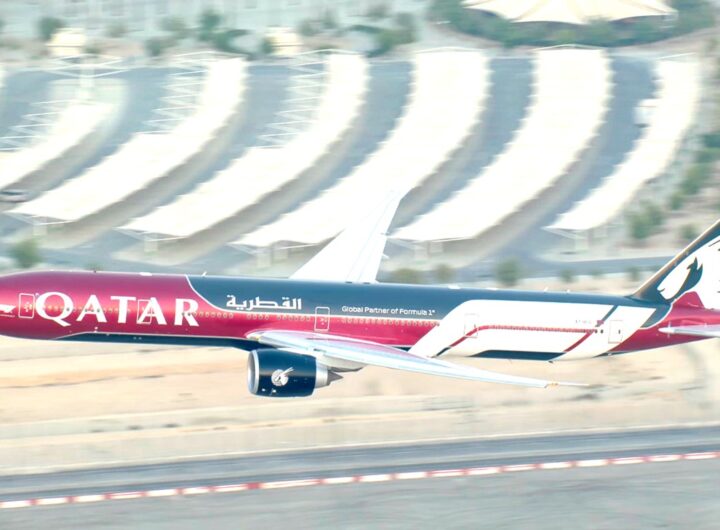 Qatar Airways’ New Formula 1 Livery Takes Off: Swizz Beatz–Designed Boeing 777 Tours the World After Qatar Grand Prix Debut
Qatar Airways’ New Formula 1 Livery Takes Off: Swizz Beatz–Designed Boeing 777 Tours the World After Qatar Grand Prix Debut  Stray Nomad 2025: A Year in Review
Stray Nomad 2025: A Year in Review 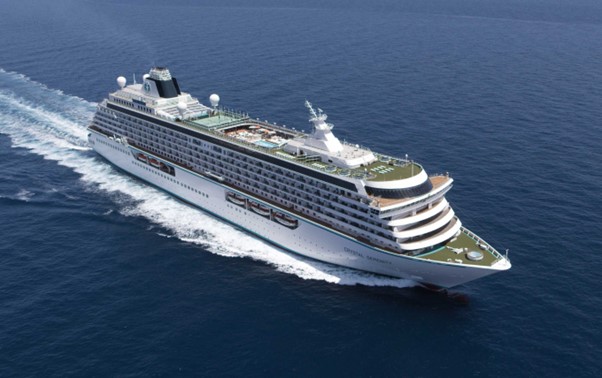 Crystal Serenity Unveils 2028 Amazon, Caribbean and Azores Voyages
Crystal Serenity Unveils 2028 Amazon, Caribbean and Azores Voyages 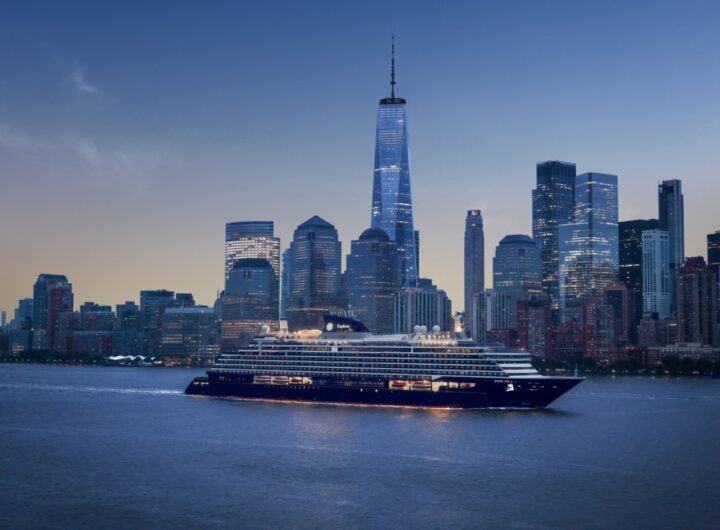 Explora Journeys and Hilton Unite for a New Era of Luxury Ocean Travel with Launch of Hilton Honors Adventures
Explora Journeys and Hilton Unite for a New Era of Luxury Ocean Travel with Launch of Hilton Honors Adventures 